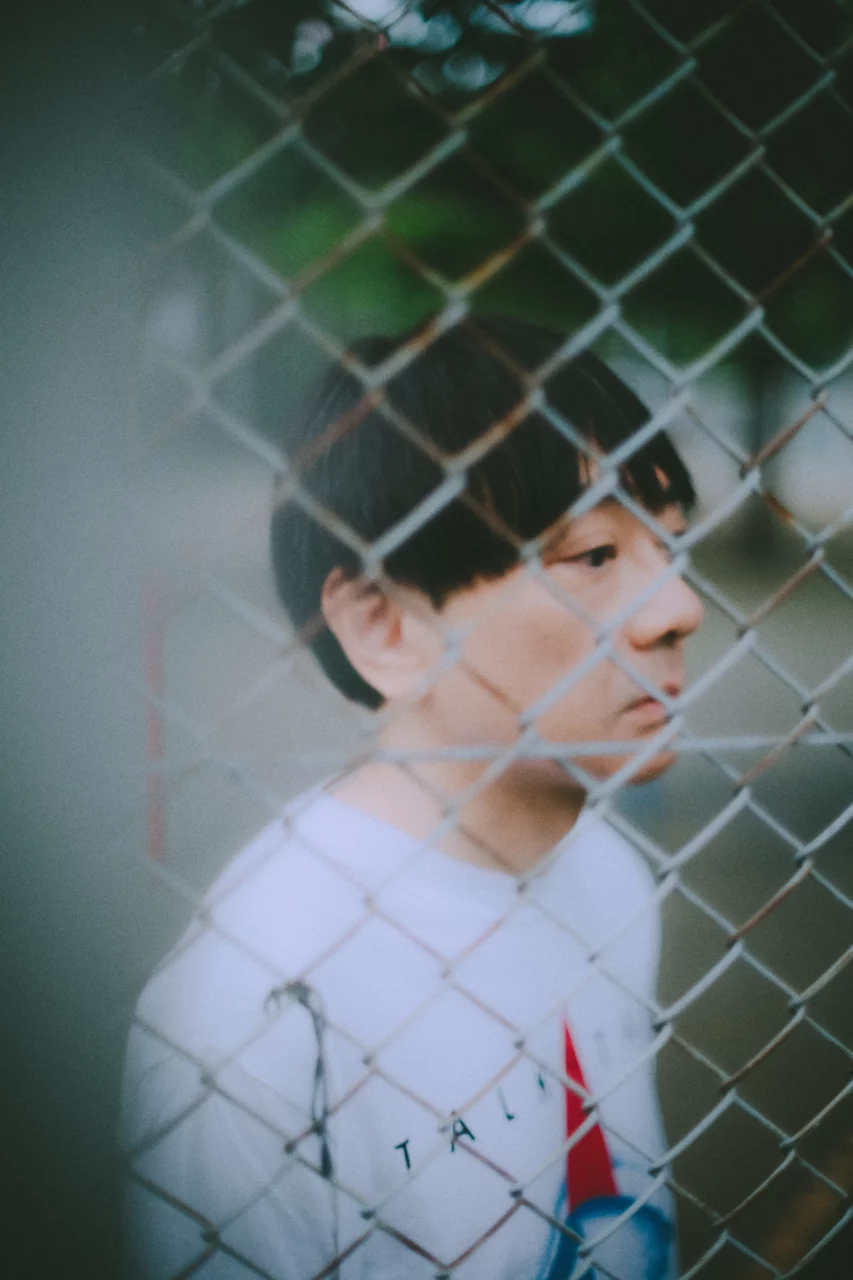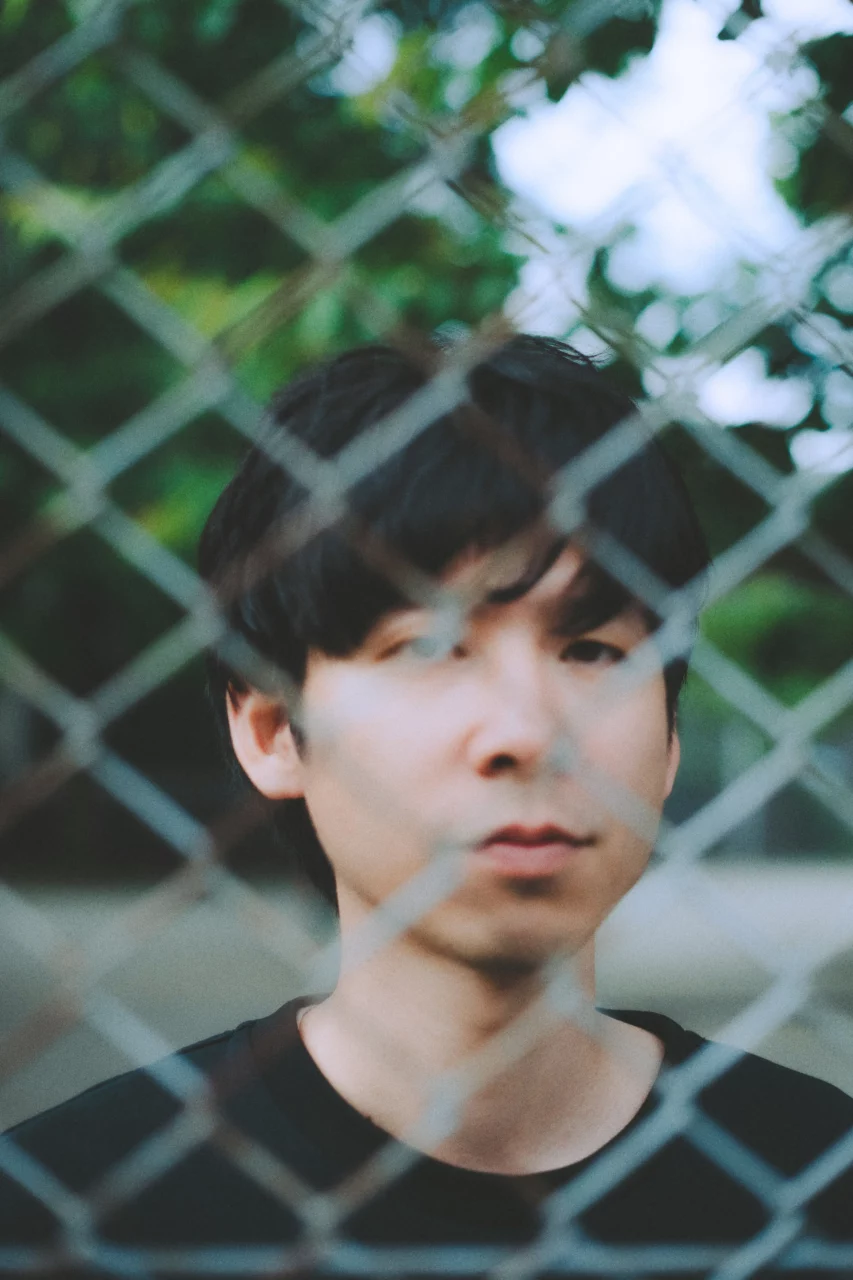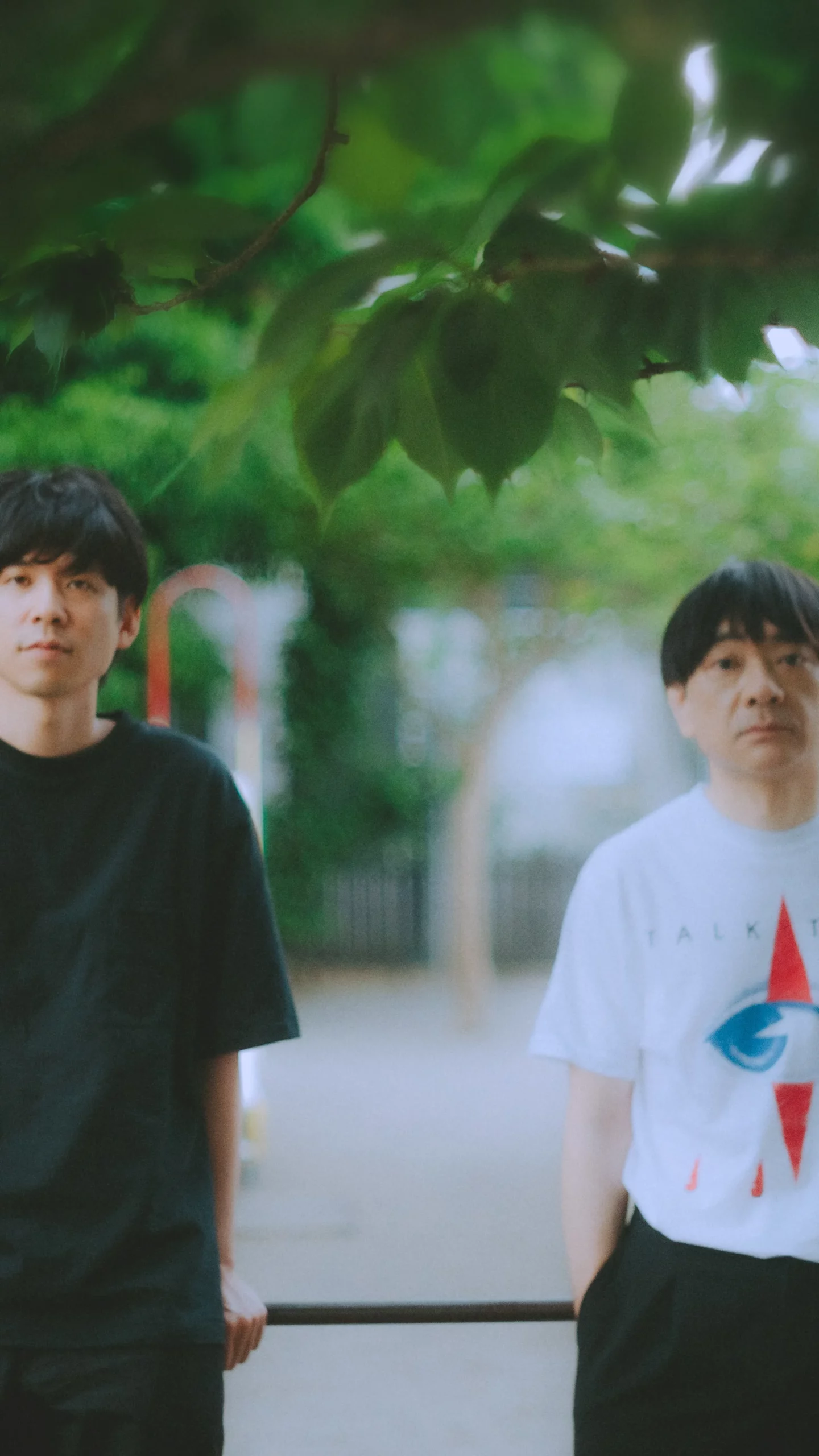INDEX
Distinctions Revealed Through the Lens of Indie Rock
Oyamada: Before getting into US indie, did you listen to other Western music?
Deto: My dad was from the Beatles generation, so I did listen to rock in that sense. But pretty quickly, I moved on to alternative stuff like Nirvana and Beck. So my foundation has that kind of indie rock feel.
Oyamada: I see. I’m from the same generation as Beck and Kurt Cobain from Nirvana, so when I was younger, I was listening to the generation before them—the artists they looked up to. I think Stephen Malkmus from Pavement probably likes bands like Echo & the Bunnymen just as much as I do.
From the 1980s through the early ’90s, I was mostly into UK music. But like you, from the mid-1990s on, I started finding the US scene more interesting.

Born in Tokyo in 1969. He debuted in 1989 as a member of Flipper’s Guitar. After the band disbanded, he began his solo activities as Cornelius in 1993. In June 2023, he released his seventh original album Dream In Dream. In October of the same year, he participated in AMBIENT KYOTO 2023 and released a cassette work titled Selected Ambient Works 00-23.
In 2024, marking his 30th anniversary as an artist, he will release Ethereal Essence on June 26, a collection that reworks his recent ambient-leaning works. In addition to his solo career, Cornelius is actively involved in a wide range of projects including collaborations, remixes, and production for numerous artists both in Japan and abroad.
On the other hand, Deto, did you get into the neo-acoustic or neo-psychedelic stuff that Keigo was listening to back in the 1980s?
Deto: Hmm, not really, I don’t think I listened to much of that.
Oyamada: That kind of music seems to have fallen out of the radar for music fans younger than me (laughs). I’ve talked about this in various places, but I’m especially surprised by how little attention Echo & the Bunnymen get these days. Back then, they were as popular as The Cure or U2—maybe even more popular.
Deto: That doesn’t really resonate with me, I guess.
You probably listened to a lot of US indie from before your time, right? Like Hüsker Dü or Minutemen…
Deto: Not a lot, but yes, more so than UK stuff. I especially liked Fugazi.
Oyamada: Even with Ian MacKaye, I’m from the generation influenced more by his earlier band, Minor Threat. I even used to do Minor Threat covers when I was in high school.
These generational differences in musical interests might seem like small details, but they actually play a big role in shaping each person’s musical worldview. For instance, Steve Albini was already regarded as a “renowned producer” by your generation, Deto, but for Oyamada…
Oyamada: For me, he was more known as “the guy from Big Black” first and foremost.
By the way, which artists were the biggest influences on OGRE YOU ASSHOLE in their early days?
Deto: I’d say Thinking Fellers Union Local 282, a lo-fi band from the West Coast of the US. They were hugely popular within a pretty small circle of friends.
Oyamada: That’s a band I’m not familiar with.
Deto: I remember when we played a gig with PANICSMILE early on, Eiko Ishibashi told me we sounded like Thinking Fellers Union Local 282.

Known as one of today’s top live bands, OGRE YOU ASSHOLE creates mellow psychedelic music that has inspired many followers. Starting with a guitar sound aligned with 2000s US indie, they solidified their place through a conceptual trilogy of albums—homely, 100 Nen Go (One Hundred Years Later), and Papercraft—which blend psychedelic rock and krautrock influences. They’ve appeared on the WHITE STAGE at FUJI ROCK FESTIVAL in 2014 and on the RED MARQUEE stage in 2022. In September 2024, they released their latest album, Shizen to Computer (Nature and Computer).
Modest Mouse has also been a big influence, right? There’s even a story about how their name inspired your band’s name.
Oyamada: Oh really? I didn’t know that.
Deto: When Modest Mouse came to Matsumoto, I got the drummer at the time to write “Ogre You Asshole” on his arm as a signature. I still don’t really know why he wrote that [laughs]. We had a gig booked just two weeks later, so we thought, why not use that as our band name?
Oyamada: That’s a pretty cool story.
Johnny Marr, your hero and former member of The Smiths, was in Modest Mouse from 2006 to 2009, right? The news of him joining was quite a surprise.
Oyamada: Yeah, that’s right. When Johnny Marr was in Modest Mouse, Cornelius also played at the same All Tomorrow’s Parties festival as them.
We all stayed in the same cottage area, and one morning while I was brushing my teeth, Johnny Marr walked right past me and I was like, “Whoa!” (laughs). I’ve seen him a few times since then, and he’s a really great, big-brother type of guy.
Deto: Actually, I once had a conversation with Johnny Marr (※). It seemed like he really liked early OGRE YOU ASSHOLE.
Oyamada: That’s awesome, amazing.
Deto: At that time, he said we sounded like CAN played at 45 rpm.
Oyamada: Wow, that’s impressive.
Deto: Back then, although I was listening to CAN and other German music to some extent, we didn’t really think it was the kind of music we could make ourselves.

























